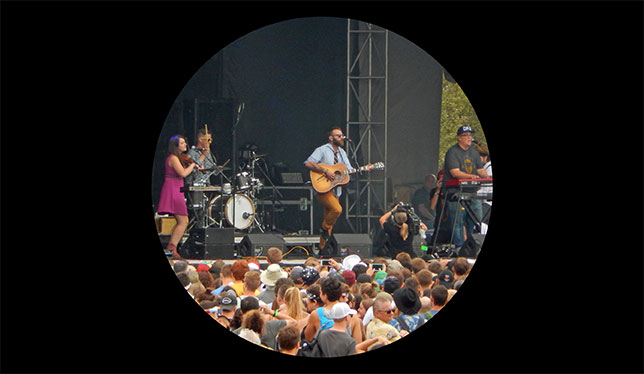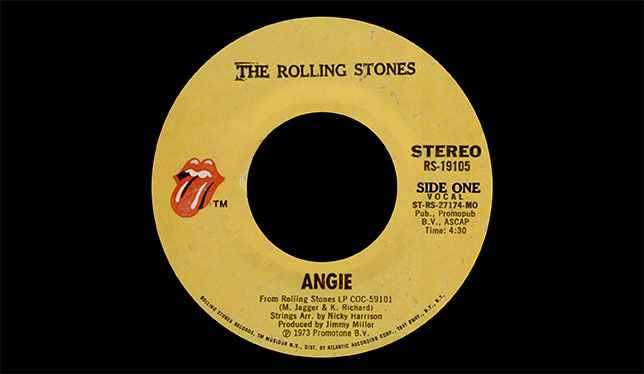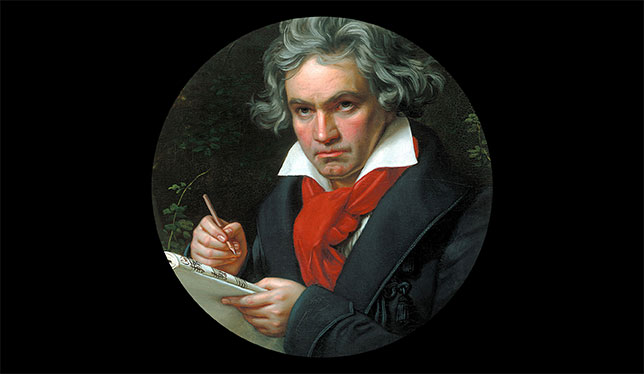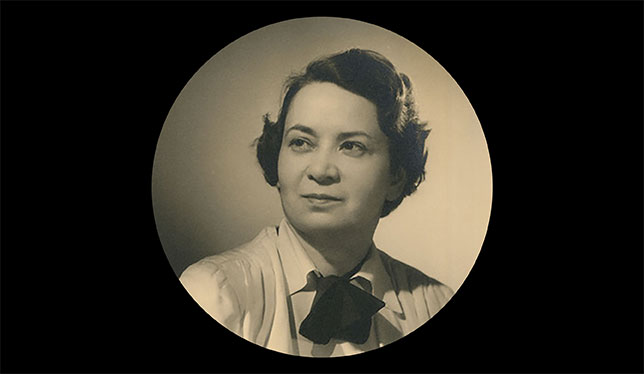Between propaganda and resistance, music has occupied an ambivalent place throughout history. This is what Marie-Hélène Benoit-Otis, a professor at Université de Montréal and Canada Research Chair in music and politics, has found. A musicologist, pianist and music lover at heart, Dr. Benoit-Otis is interested in the role that music plays in the formation of political discourses. Her favourite era is the 1940s and 1950s because this saw the emergence of the mechanisms used later in various socio-political contexts. Hers is a fascinating academic career centered around passion, history, transdisciplinarity and the collective construction of knowledge.
Unlike many instrumentalists whose parents were also musical, Dr. Benoit-Otis owes her interest in music to early development classes for four-year-olds. She chose the piano and continued her training in music at CEGEP before considering two possible paths for university: pharmacy or musicology. “I had an epiphany when I made my course selection,” recalls the researcher, who was anticipating a career as a pianist. It was an impromptu collaboration with one of her colleagues that sparked her university focus. “She asked me to help her because I speak German,” says Dr. Benoit-Otis, who also has a postgraduate degree in German studies from the Canadian Centre for German and European Studies.

Some might call it a turning point, an “ah ha!” moment or the penny dropping, but Marie-Hélène Benoit-Otis says that the experience opened up a “Pandora’s box” for her. It was decided. She would devote her years of research to understanding how and why music can be used to serve political discourse. Music can play different roles in this respect. It can serve as a propaganda tool in the hands of the authorities, or as a means of resistance employed by musicians and their audiences. “Prison songs can be a way to resist and survive in concentration camps, for example,” she says.
Malleable material
Whatever the context, music and politics are closely linked. Politicians seeking votes often try to use rock music to bolster their credibility, sometimes with mixed results. To illustrate, Dr. Benoit-Otis talked about the controversy around Justin Trudeau’s 2019 election campaign music. The anthem of the Liberal Party of Canada, One Hand Up, by Ontario band The Strumbellas, had been clumsily translated and sung in French (On lève une main haute), much to the displeasure of many francophone ears.
“Often a political party will use a song and it doesn’t appeal to the public, or the artists are not pleased.”
A corrected version was released, along with a humble apology from the Liberal leader. “Often a political party will use a song,” says Dr. Benoit-Otis, “and it doesn’t appeal to the public, or the artists are not pleased.” In Germany, the use of Angie by Angela Merkel in 2005 was not well received by its composers, the Rolling Stones, even though Ms. Merkel’s party insisted it had obtained the right to play it at her rallies.

The same piece of music can also be used for diametrically opposed political ends. Beethoven’s Ninth Symphony was used to celebrate Hitler’s birthday in 1937 and 1942, as well as to mark the fall of the Berlin Wall in 1989. “Because there are no words in instrumental music, you can make it say whatever you want. You can build your own discourse around a work,” explains Dr. Benoit-Otis, who completed a joint PhD in musicology at U de M and Freie Universität Berlin in 2010.
Nine years later, under an initiative to create Tier 2 Canada Research Chairs for early-career researchers, she successfully proposed one on music and politics. “Ultimately, Dr. Benoit-Otis and her research team are seeking to classify the various political roles that music and musicians can play in the public square, particularly in contemporary societies,” her research summary states.

International visibility
She now heads a lab composed of 12 students. In addition, she is co-supervising several students in other departments. In all, she has about 20 students in her charge. Research projects, especially international ones, have multiplied over the years. Among the major works, a team of a dozen people has been studying the links between musical propaganda and diplomacy to try to define the difference between the two. “The idea was to cover as much ground as possible by collecting available examples,” Dr. Benoit-Otis explains. “Our initial findings show such a variety of uses that we wonder whether they should be clarified and categorized or left in their diversity.”
“Because there are no words in instrumental music, you can make it say whatever you want. You can build your own discourse around a work.”
In August, her research was the subject of a round-table at the 21st Quinquennial Congress of the International Musicological Society in Athens, where she organized a discussion on the fine line between diplomacy and propaganda across borders, with the term “diplomacy” used for contexts deemed morally acceptable and “propaganda” for more problematic uses of music.

She recently flew to New Orleans to participate in the American Musicological Society’s 2022 conference where, along with Cécile Quesney from Université de Rouen, she gave a talk on the prison songs of Yvonne Oddon, a member of the French Resistance who was arrested in 1941. Throughout her time in a concentration camp, Ms. Oddon kept notes on the songs she and her fellow inmates made up from popular melodies.
The two researchers’ analysis focused on the importance of collective singing of popular melodies to keep up morale among a group of highly politicized prisoners. “The songs expressed the solidarity and hope one needs in order to survive imprisonment,” adds Dr. Benoit-Otis. This brings to mind the origin of blues music, which was an expression of resistance to slavery and is yet another example of the role of music as the ultimate space for freedom and humanity.

Hello
Let me state that this is not my area. However, I wish the article would present a deeper and more critical and nuanced analysis. This should include an analysis that recognizes the utilization of sanctioned prototypical music genres for political manipulations, control, and the solidarity of “us” vs them through reliance on certain kinds of music that are associated with a sense of solidarity but also demarcate who is in and who is out. Solidarity and hope are clearly important. However, I can’t help but think of how music has been used to underline a sense of us vs them as was achieved by the Nazis for example.
In 1976 I entered the new MA/Ph.D program in Religious Studies at U of Toronto. I wanted to do work on the connections between black women’s religious lives and their musical expression in blues and jazz. I was told two things unequivocally: I could not talk about music unless I had a degree in musicology, and that Christianity had nothing to do with popular music. I got my degrees (Ph.D. in Religion and Culture, 1988 – still the only one in that field from U of T the last time I looked). For close to 20 years now I have coordinated the Cultural Studies program which I helped co-found, at MSVU in Halifax. I was delighted to offer a course called Rap, Resistance and Religion (though I had to wait until a new century dawned before this could be done). I think the initiative above is to be congratulated – but (as the song goes) “it has been a long time coming…”.
I like the utility of music that the article voices. I am a first time visitor from the States (VT) with a Masters of Education in Training and Organizational Development (2018) from North Carolina State University.
i have developed an educational perspective on social activism for all ages k-adult and would like to share an outstanding primer on Social Justice – and the development of ones’ Social Justice Orientation (SJO). Text is named From Thought to Action – Developing a Social Justice Orientation- by Dr. Amy Aldridge Sanford.
As we read Dr. Benoit -Otis’s article we are actually developing our sense of SJO. Hence, those engaging in this kind of Music research, including Dr. Benoit- Otis may find further exploration centering SJO and Music use extends or centers their research.